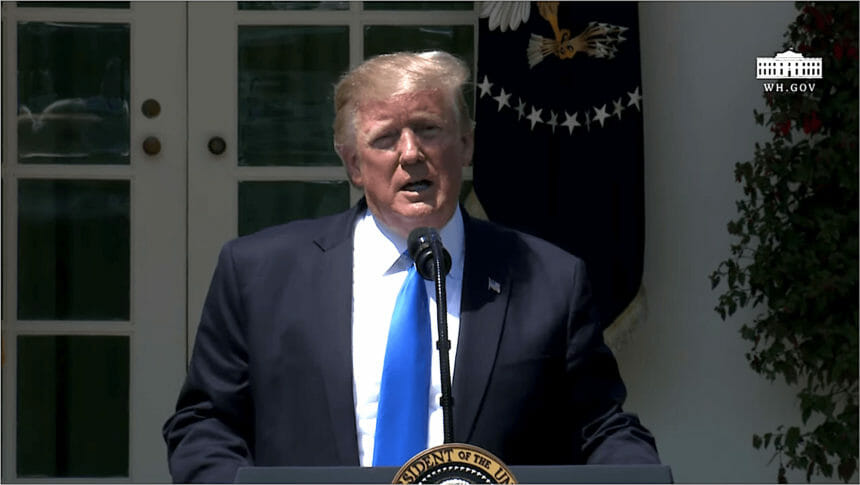
Individual healthcare workers as well as healthcare organizations can decline to provide care that conflicts with their religious and moral beliefs or mission under a final rule issued Thursday by the Department of Health and Human Services Office for Civil Rights.
“This rule ensures that healthcare entities and professionals won’t be bullied out of the healthcare field because they decline to participate in actions that violate their conscience, including the taking of human life,” OCR Director Roger Severino said in a statement.
Among providers affected are assisted living communities that accept payments from Medicaid. The rule specifies what organizations need to do to comply. It will become effective 60 days after publication in the Federal Register.
The final rule makes several references to abortion but also refers to advance directives, “assisted suicide, euthanasia, or mercy killing,” “compulsory healthcare or services generally, and under specific programs for hearing screening, occupational illness testing; vaccination and mental health treatment” as well as “certain requirements under Medicare and Medicaid that may burden their exercise of their religious beliefs regarding medical treatment.”
HHS announced a proposed version of the “conscience rule” in January 2018 following the launch of its new Conscience and Religious Freedom Division. The proposal was published on Jan. 26, 2018, and HHS said it received more than 242,000 comments by the March 27, 2018, deadline.
Among those submitting comments were LeadingAge and the American Health Care Association / National Center for Assisted Living.
AHCA / NCAL had requested that HHS not apply the rule to long-term and post-acute care providers, saying it would increase the “regulatory burden” on these providers and take away from time for providing care.
“Staff, residents, and residents’ families from nursing centers, centers providing care for individuals with intellectual or developmental disabilities, and assisted living communities that accept Medicaid already have multiple outlets for reporting complaints or concerns,” Lilly Hummel, AHCA / NCAL senior director of policy and program integrity, wrote in submitted comments.
HHS did not exempt such facilities in the final rule. It applies to skilled nursing facilities, continuing care retirement communities, residential intellectual and developmental disability facilities and other residential care facilities, such as group homes, among other types of entities, the agency said.
Thursday, a LeadingAge spokeswoman said the organization “supports religious freedom and the rights of all healthcare providers and their staff to live up to their religious beliefs. We do not encourage intolerance and discrimination.”
The Human Rights Campaign, the National Center for Lesbian Rights and Fenway Health were among the organizations Thursday expressing concern that the rule would lead to discrimination against lesbian, gay, bisexual and transgender individuals.
The Human Rights Campaign had mentioned assisted living specifically in its March comments on the proposed rule.
“Amongst the thousands of stories we received, many members shared stories of outright denial of care,” the organization wrote in its comments. “For example, a nurse assigned to care for an elderly gay man in an assisted living facility refused to bath him or provide the necessary day-to-day care that he needed and deserved simply because he was gay.”
Photo: President Trump mentioned the rule during his comments at the National Day of Prayer Service (around 1:11).



